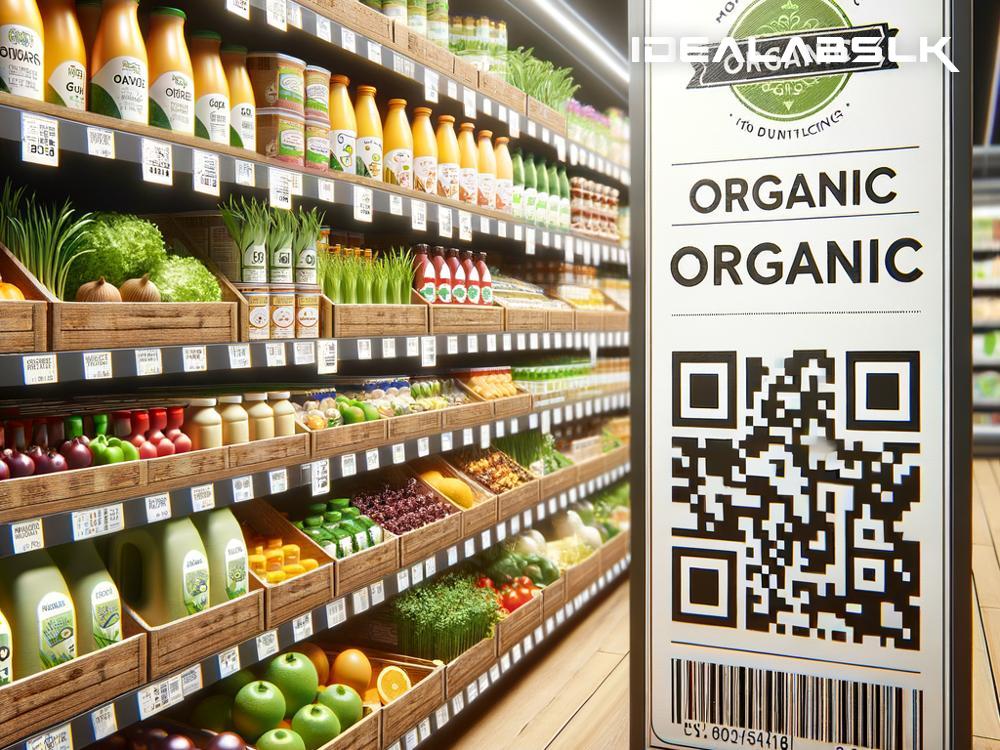Blockchain Technology: A Game Changer in Fighting Fake Organic Labels in Supermarkets
Have you ever found yourself in the organic section of a supermarket, wondering if the premium prices are truly worth it for the organic label on the products? It's a valid concern, especially with the rise of fake organic labels that mislead consumers. However, a revolutionary solution is making waves in the transparency of food origins and authenticity: Blockchain technology.
Blockchain, a term more commonly associated with cryptocurrencies like Bitcoin, is stepping into the food industry as a powerful tool to combat the issue of counterfeit organic products. But how does it work, and why is it effective in ensuring the authenticity of organic labels? Let's dive into the fascinating world of blockchain and its role in reducing fake organic labels in supermarkets.
What is Blockchain?
Simply put, blockchain is a digital ledger that securely records transactions across many computers so that the record cannot be altered retroactively. Imagine it as a book where each page (block) contains several transactions, and every time a new transaction occurs, a new page gets added to the book. This book is not held by one person but is duplicated across thousands of computers (nodes), making the data transparent and tamper-proof.
The Problem with Organic Labels
The demand for organic food has skyrocketed in recent years, driven by consumers' growing health consciousness and environmental concerns. However, this surge has also paved the way for fraudulent organic certifications. Some businesses see this as an opportunity to charge premium prices without meeting the stringent standards required for organic labeling. For consumers, this deception not only means spending more money but also not receiving the health and environmental benefits they seek.
How Can Blockchain Help?
Blockchain technology offers a promising solution to ensure the integrity of organic labels by providing a transparent, immutable record of every product's journey from farm to supermarket shelf. Here’s how it can revolutionize the system:
-
Traceability: Every step of a product's journey can be recorded on the blockchain, from the farm where it was produced, through processing and shipping, all the way to the supermarket shelf. This level of traceability means that if a product claims to be organic, you can check its entire history to verify that claim.
-
Transparency: Because the blockchain is a decentralized system, no single entity has control over the information, making it openly available to anyone. Consumers can use their smartphones to scan a QR code on the product packaging and view the product's entire lifecycle, providing unparalleled transparency.
-
Tamper-proof: Once information is recorded on the blockchain, it cannot be altered or deleted. This makes falsifying organic certifications or any part of the product’s journey next to impossible. Any attempt to tamper with the data would be immediately apparent.
-
Empowerment: By giving consumers the ability to easily verify the authenticity of organic labels, blockchain technology empowers them to make informed decisions about the products they choose to purchase.
Real-World Application
Several forward-thinking companies are already implementing blockchain technology to ensure the authenticity of their organic products. For instance, certain organic coffee producers use blockchain to provide customers with detailed information about the coffee's origin, including where it was grown, when it was harvested, and how it was processed. This level of detail reassures customers that what they're buying is genuinely organic.
The Future of Organic Labels with Blockchain
Implementing blockchain in the verification process of organic products is still in the early stages, but its potential is vast. As more businesses adopt this technology, we can expect a significant reduction in fake organic labels, making it easier for consumers to trust the authenticity of organic products. This not only benefits consumers by providing them with genuine organic options but also supports farmers and businesses who are committed to sustainable and organic practices.
In conclusion, blockchain technology holds the key to fixing the broken trust system between organic labels and consumers. Its ability to ensure traceability, transparency, and security could very well mean the end of fake organic labels in supermarkets. As we move forward, embracing this technology could lead to a healthier, more sustainable future for our food systems. Indeed, the future of food authenticity looks promising, and it's all thanks to the power of blockchain.

